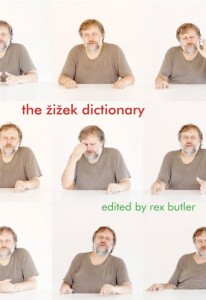
Abstract
“Heidegger” entry for The Žižek Dictionary
This entry details the case for seeing Heidegger as integral to Slavoj Žižek’s thought. Before explaining why Heidegger might offer a more interesting interpretive picture of Žižek than does the Hegel-based access to him preferred by Žižek himself, let me recount the basic “case for Heidegger”. It is a case, of course, that begins from the historical fact of Žižek’s own scholarly emergence (before traveling to Paris and studying psychoanalysis with Jacques-Alain Miller) as a member of the then “Slovenian Heidegger School”, but it also includes not only the mature Žižek’s numerous “returns” and “Auseinandersetzungen” with Heidegger but also several assertions of the importance of the Freiburg thinker for all of contemporary thought.1
We could divide Žižek’s major discussions between his defence of Heidegger through an unorthodox reading of his early work as a radical subjectivism and his challenge to Heidegger as nonetheless insufficiently radical in relationship to Hegel and Lacan. To begin with Žižek’s avowedly Heideggerian moments, his post-2000 efforts include a discussion in The Parallax View, contrasting Cartesian ethical scepticism (follow the customs and laws of your land, lacking a grounded philosophical knowledge of right and wrong to displace them) and the “anticipatory resoluteness” of Being and Time – a contrast already suggesting that what seems a merely moral or even psychological matter really carries an ontological insight (PV: 273–5; Brockelman 2008: 4–6). For Žižek, Heidegger doubles the merely existentialist idea according to which, as finite, mortal beings, we can never know the truth about our reality. “Anticipatory resoluteness” – as an act of decision – is a kind of practical knowledge of reality, one affirming that the world “is not”, that it has no totality or fixed order. As a knowledge only available in acting, Žižek takes such resoluteness as radically subjective, as self-consciously produced by the subject precisely in affirming the impossibility that one might discover any normative measure in the world.
We could also include under the Žižekian strategy of radicalizing the earlier Heidegger the passages from In Defense of Lost Causes and Less Than Nothing in which Žižek defends Heidegger’s explorations of “will” in his Heraclitus and Anaximander seminars from the early 1930s (LC: 149–50; LN: 883). This “will” is neither the possession of any individual nor yet some force of a natural super-subject. Associating it with the Freudian/Lacanian “drive” (and the Lacanian Real), as Žižek repeatedly does, simply makes explicit how far Žižek pushes our understanding of finitude away from traditional existential categories.
On the other hand, Žižek’s radicalization of Heidegger is realized in his immanent critique of Heidegger as necessarily failing to live up to the potential con- tained in his own concepts. In the period up through 2007–8, Žižek’s criticisms focus primarily on Heidegger’s politics. In so far as Heidegger could not fully acknowledge in 1927 that the “subject of finitude” he discovered was only problematically an “individual”, he felt obliged to “expand” his analysis to social Dasein by “building out” a “being-with” that remains traditionally communitarian. In this way, so says Žižek, the Heidegger of Being and Time missed the opportunity for a spontaneous, decisionist collectivism – which Žižek associates with the politics of St Paul (PD: 130). In missing the opportunity for collectivism in his nostalgia for a kind of pre-modern community, Heidegger foreshadows his great Nazi-era “mistake”, a mistake that Žižek characterizes precisely as a retreat from the inner telos of his work: Heidegger should have been a communist (PV: 285; LN: 879), and the repression necessary to hide this slowly takes hold, first in the “acting out” of Heidegger’s Nazi affiliation and then in the firm “post-turn” development of a philosophy where there is simply no space for any socius except that pre-constituted as “community”.2
Žižek’s more recent work further explores the fully ontological implications of this critique, suggesting as he already does in a 2007 text that a consistent reading of Heidegger’s “unconcealment” as admitting the “horizon” of truth always to be immanent to the field of beings itself forces a properly traumatic element into our experience of finitude (“Why Heidegger”: 22–3). In the more recent work, this traumatic element of the subject is both emphasized and asserted to be what always escapes Heidegger; and it is in this context that Žižek explicitly takes up the comparison of Heidegger with Hegel, always in Hegel’s favour.3 Most extensively, in a chapter of Less Than Nothing devoted almost entirely to the Heidegger–Hegel relationship, Žižek argues that, if Heidegger (in Hegel’s Concept of Experience) accuses Hegel of evading human finitude in transcending the experiential “transcendental pain” of historicity/mortality in a synthetic “absolute knowing”, then such an accusation turns out to be exactly wrong: for Žižek, Hegelian dialectic rather internalizes the pain contained in experience by allowing it to contaminate, and thus transform, transcendental truth itself.4
Žižek shows that, lacking such a transformative option, Heidegger instead remains stuck between a view of “everyday experience” riven by death and negativity and a transcendental analysis that seems far from the contingency of actual Dasein. To respond to this split, Heidegger must eventually (after 1934) sacrifice the subject itself in the name of historicity – a historicity so total that it erases any ahistorical dimensions of phenomenological experience. However, by using these means to set up the priority of the “destining of Being”, Heidegger actually loses history’s negativity, transforming history itself into the field for the unfolding of Being’s different, apparently pre-given, eras. In other words, we lose the effect of subjectivity, the effect of radical contingency. Above all, for Žižek this loss emerges in Heidegger’s thought about language, which papers over the traumatic nature of the symbolic when it appears (in the “Letter on Humanism” and afterwards) as the “house of Being”. Giving a properly Lacanian twist on this, Žižek insists that, instead of a “house”, peacefully occupied by “shepherds of Being”, language is a “torture-house”. For Žižek, our very entry into the symbolic dimension necessarily produces along with it an odd shadow of the subject, namely, matter that speaks, that insists upon itself precisely at the same time that it ushers in (in the symbolic dimension as a whole) the (illusory) hope of reducing all Being to meaning: the torturer’s signifier, whether it emerges literally in “conversion-symptoms inscribed into the body” (LN: 871) or in its extensions onto some bodily prosthesis (a comb, a picture of wolves in a tree, etc.), “torments” us with a non-transparency at the centre of experience, with something that cannot appear in appearance.
No doubt, Žižek is right that Heidegger does and must miss the primordial discord in Being that Žižek locates as “the dark side of our dwelling in language”. However, it is important to note that he stages the entire fantasy duel between Hegel and Heidegger fought in chapter 13 of Less Than Nothing as a story about finitude! Not only does Žižek devote several lengthy passages (even beyond chapter 13) in Less Than Nothing to demonstrating that the Hegelian dialectic is not a betrayal of finitude, but Heidegger comes up short here precisely when measured against his predecessor on that scale. In other words, if the point of preferring Hegel over Heidegger is that dialectical thought allows us to think a historicity and negativity without a telos or even predetermined subject, then it is nonetheless the case that this superiority is demonstrated regarding finitude – a predetermined subject. All of which is not to deny the superiority of Hegel’s thought to Heidegger’s nor in any way to challenge Žižek’s Hegel or Heidegger interpretations, but simply to insist that Žižek’s project emerges from a particular and identifiably Heideggerian way of seeing the human condition within history.
That way of seeing things always sets out, not from Hegel, but from Descartes and/or Kant, with whom, as Žižek puts in Less Than Nothing, “it all begins” on account of their transformation of philosophy from a “general science of Being as such” to an endeavour based for the first time on the investigation of “appearances”, not as “mere illusion” but as the conditions of possibility for experience, as phenomena (TN: 9). That is, for Žižek, as for Hegel himself, the key moment in history is the modern moment, the moment when finitude is thematized, not as a limitation of the human person in relationship to some greater whole (the cosmos, God, etc.), but as a positive characteristic definitive of human experience and knowledge.5 Hegel (and the Lacan who follows him) then demands that we “kill”6 that earlier moment by performing a specific twist on finitude – ontologizing its merely epistemological embrace or radicalizing its effects on the Symbolic by introducing the Real, and so on. However, the key point is that, when filtered in this way, the “story” of Žižek’s own thought cannot be told starting from Hegel himself. That is the case because we have to begin from the subjective or finitist moment in order to comprehend the specific deflections of subjectivity or finitude defining the present: at a first pass, from the perspective of the storyteller’s art, Hegel turns out to be a lousy foundation. You have to tell another story before you can even get to the story that interests you.7
The first virtue of accessing Žižek through early Heidegger is the way that it makes this view of history, its division into two at the point of modernity, appear as the primary fact.8 The second virtue is that it exposes something about Žižek that would remain unclear if we followed his own preferred access to his work; it calls attention to the doubleness in Žižek’s own position by challenging any view of it as a progression that actually “does away with” the earlier position in constituting its replacement. Whatever is true of Hegelian dialectic, Žižek himself never really murders his finitist starting point. But, in his perpetual pose as a kind of polemicist/provocateur, he does go to great lengths to obscure this fact, diverting our attention away from a definitional ambivalence in his work.
In my own Žižek and Heidegger: The Question Concerning Techno-Capitalism (Brockelman 2008) and other works, I trace this ambivalence in at least three phenomena: Žižek’s odd reliance upon and simultaneous absolute rejection of Heidegger’s technology-critique; an oddly unresolved inconsistency about the addressee (and level of address) of Žižek’s own critical theory; and, finally, a perpetually repeated split between a methodological historicism and a radical anti-historicism, a split that distorts Žižek’s writings on revolution in a noticeable way. In all three cases, “Heidegger” points to the place of something like Žižek’s symptom, the single point from which his work constitutes a series of diversions, the point at which his irresolvable jouissance emerges. It is because of this over-determination rather than any substantive agreement with the German’s position that I take Žižek’s assertion “Lacan (and thus Žižek) is not a Heideggerian”9 to constitute a classic example of Freudian negation. What he really is saying is, “I am a Heideggerian”!
2. “[W]here Heidegger erred most (his Nazi engagement), he came closest to truth. Far from resolving the inconsistencies of phase 2 [of Heidegger’s thinking about will], phase 3 proposes a new paradigm which makes them invisible. In contrast to this assertion of the late green-Gelassenheit Heidegger, one should therefore explore for new openings the very Heidegger of violence, political deeds and sacrifices” (“Why Heidegger”: 37).
3. Chapter 13 of Less Than Nothing,in fact, contains a section dating back to a talk given in 2011 in Berlin entitled “Hegel versus Heidegger”.
4. As Žižek puts it: “It is not only natural consciousness which is shattered when it has to confront death, but also the transcendental background or frame as the measure of what the natural consciousness experiences as its inadequacy and failure – as Hegel put it, if what we thought to be true fails the measure of truth, this measure itself has to be abandoned” (LN: X).
5. In recent years,Žižek has right emphasized that the emergence of this “modern” subject is not its creation – that the human subject is, in a sense, ahistorical: what characterizes the modern revolution is that it allows this subject to appear. This is, indeed, a part of Žižek’s Auseinandersetzung with Heidegger, who only briefly, in 1933, entertains the possibility of an ahistorical subjectivity. See “Why Heidegger”: 33–4, 36.
6. In chapter 8 of Less Than Nothing, Žižek explains the Hegelian dialectic as he understands it in relationship to Chris Nolan’s film The Prestige. The title of that film refers to the third or final moment of any magic trick, the part of it that produces the effect of magic. The film “explains” the prestige by means of a trick in which a bird is apparently released from a cage but actually is killed and substituted by another bird. Žižek uses this moment, which also stands in for the central plot element of Nolan’s film, to explain Hegelian Aufhebung: as he puts it in that passage, “in order for the miracle of ‘the prestige’ (Aufhebung) to occur, somewhere there must be a squashed bird” (LN: 532).
7. Had we more space/time, we would have to respond to the just rejoinder that Žižek’s preferred form of narrative is precisely the digressive joke. Žižek’s own style of storytelling is perhaps best characterized by this kind of diversion or “strange loop” where an original narrative is interrupted and forced to tell another story– Rabbinowitz and the visa for Soviet Jews; the seed for the giant chicken, and so on. Nonetheless, this does not change the indebtedness of the joke to that first narrative, the one to which the interruption is made.
8. In an interview originally published in 1991 in Radical Philosophy, Žižek acknowledges the odd “modernity” of his position, its allegiance with a certain kind of critical modernism that divides it from the anti-enlightenment and historically revisionist postmodernism of both Foucauldian and Derridean kinds (“Lacan in Slovenia”: 26).
9. Žižek published an article entitled “Why Lacan is not a Heideggerian” in Lacanian Ink 32 (2008). Much of the article reappears, along with its title, in chapter 13 of Less Than Nothing.

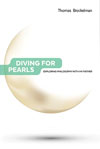
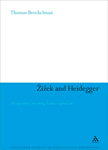
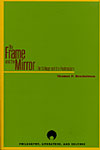
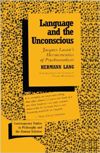 Language and the Unconscious: Lacan's Hermeneutics of Psychoanalysis
Language and the Unconscious: Lacan's Hermeneutics of Psychoanalysis

